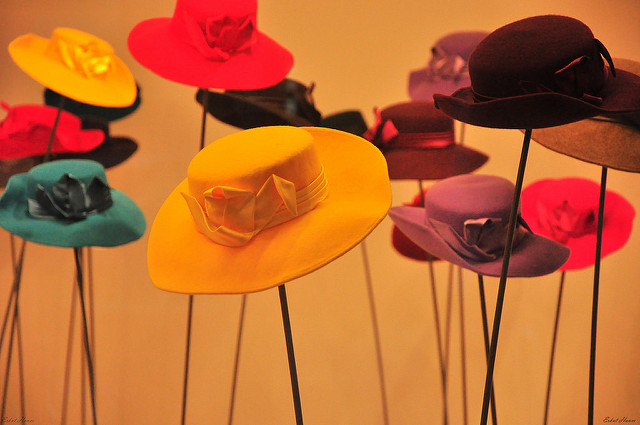hatstand

hatstand, hat stand – aggettivo
This man is incredibly funny as well as being completely hatstand.
The cut scenes are still hatstand mad and the presentation is still wonderfully quirky.
The City crowd had now gone totally hatstand with the rapture.
Parrebbe che in inglese non ci siano mai abbastanza termini per dire ‘crazy’, visto che ogni tanto qualcuno ne inventa uno nuovo… Oggi prendiamo in esame hatstand.
Non sono in molti a indossare il cappello, di questi tempi, però il classico hatstand, l’appendiabiti da ingresso dove trovano spazio anche giacche, ombrelli, sciarpe ecc., è ancora un pezzo d’arredamento comune in molte abitazioni. Ma cos’ha a che fare quest’umile oggetto con l’essere un po’ tocchi?
A rigor di termini*, niente. L’uso del sostantivo hatstand con valore aggettivale per riferirsi a un comportamento palesemente bizzarro sembra essersi materializzato all’improvviso nella rivista satirica inglese Viz ed essersi diffuso inizialmente tra i lettori della suddetta pubblicazione. Non l’ho mai sentito usare nel parlato, mentre di tanto in tanto appare in qualche scritto, come negli esempi citati sopra.
*Dico a rigor di termini perché esiste un legame tra cappelli o cappellai e pazzia (pensate al Cappellaio Matto di Alice nel Paese delle Meraviglie) per cui è possibile che chi ha coniato il termine avesse in mente questa connessione, seppure a livello subconscio.
Origini del termine
Nell’Oxford English Dictionary il primo riferimento a quest’uso di hatstand è precisissimo: l’edizione del 19 giugno 1987 della rivista Viz.
Traduzione di Loredana Riu
hatstand, hat stand – adjective
This man is incredibly funny as well as being completely hatstand.
The cut scenes are still hatstand mad and the presentation is still wonderfully quirky.
The City crowd had now gone totally hatstand with the rapture.
You might think that English with its rich treasure trove of slang would have enough different words meaning ‘crazy’. You would be wrong. Sometimes people feel the need to invent a new one, and hatstand is an example of this.
Although few people wear hats these day, a hatstand is still a familiar object in many homes since it can be used for items such as coats, jackets, umbrellas, etc. But you might well wonder what this useful domestic object has to do with being crazy.
The answer is, strictly speaking*, nothing. The use of the noun hatstand as an adjective to refer to someone behaving in a noticeably crazy manner seems to have appeared out of nowhere in the UK satirical magazine Viz and to have caught on among readers of that publication. I’ve never heard it used but it pops up occasionally in writing on different subjects, as shown in the examples above.
*The reason I say ‘strictly speaking’ is because there is an association between hats or hatters and madness (think of the Mad Hatter in Alice in Wonderland) so it’s just possible that the person who coined the term had this subconscious connection in mind.
Origin
The first citation of this use of hatstand in the Oxford English Dictionary comes from the June 19 1987 edition of Viz.



